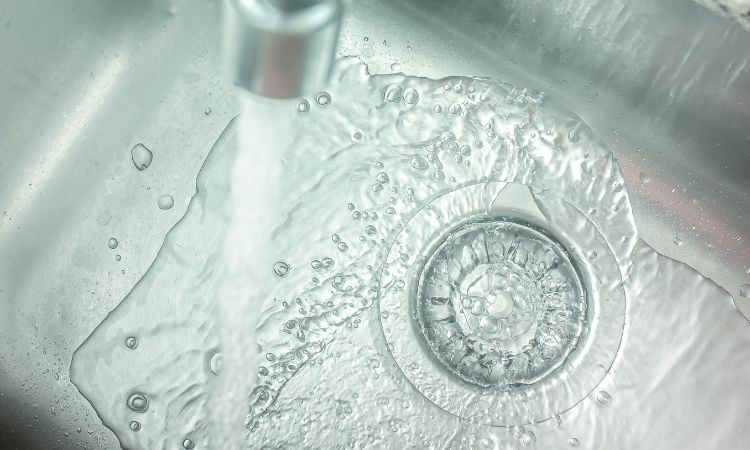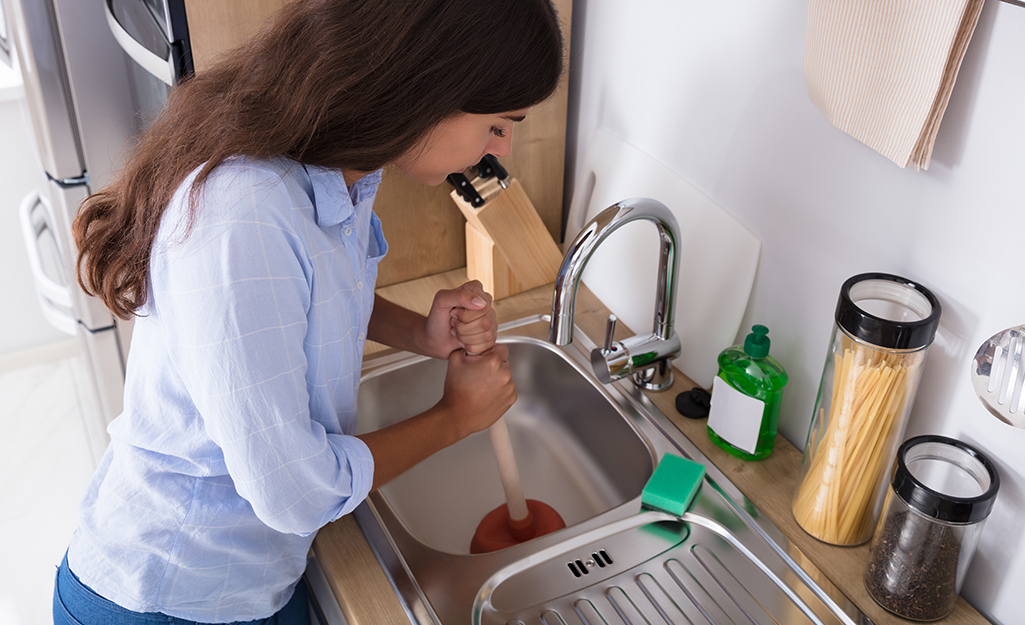Key Steps To Resolve A Slow-Draining Sink
Key Steps To Resolve A Slow-Draining Sink
Blog Article
Just how do you really feel in regards to 7 Ways To Fix A Slow-Draining Sink Before You Call A Plumber?

Introduction
We've all been there: You're cleaning your teeth or cleaning your hands, and you notice the water pooling in the sink. Rather than swiftly swirling down the tubes, it remains, turning your once-refreshing morning regimen right into a small overload scene. A slow-draining sink isn't just aggravating; it's usually an indication of bigger pipes problems lurking underneath the surface. The bright side is that the majority of slow-draining sinks can be fixed with a little expertise, a couple of fundamental tools, and some patience. Ready to tackle this task head-on? Let's roll up our sleeves and dive right in.
Understanding the Reasons For a Slow-Draining Sink
Prior to you start poking around in your pipelines, it helps to recognize what could be causing the downturn. Recognizing the origin makes it easier to pick the ideal fix.
Usual Offenders Behind Slow Drainage
So, what's clogging points up? Generally, it's a combination of day-to-day debris-- believe hair, soap scum, toothpaste residue, and remaining food particles. Over time, these little bits collect and cling to the pipeline walls, gradually narrowing the flow and making it harder for water to pass through. In some cases, natural resource from hard water can also contribute to the substance, creating the best tornado for stubborn blockages.
When is it Time to Take Action?
If you observe the water draining pipes slower than common, it's an excellent concept to interfere earlier instead of later. Waiting too long can bring about complete clogs, unpleasant smells, or even pipeline damage. If the water takes more than a couple of seconds to clean out after shutting off the faucet, consider it a warning and prepare to place on your do it yourself hat.
Tools and Materials You'll Require
The right devices make all the distinction. Luckily, you won't need a fully stocked plumber's van to do the job.
Essential Devices for DIY Services
A bettor is your go-to starting point. A little, sink-sized bettor creates suction that can dislodge minor obstructions. For more relentless blockages, a drain serpent (often called a plumbing professional's auger) works wonders. A pair of gloves, a flashlight, and maybe a set of safety safety glasses are additionally handy.
Advised Cleansing Solutions
Light dish soap and warm water can assist break down oily accumulation. A combination of baking soft drink and vinegar is a reliable natural home remedy, and enzymatic cleansers use a more environment-friendly approach. Maintain chemical drainpipe cleaners as a last resort, as they can be severe on your pipes.
Security First: Precautions and Prep work
Prior to you launch into unclogging setting, think of safety and security. You're taking care of possibly filthy water and particles, so slip on a set of gloves. If you're utilizing chemical cleaners, guarantee the space is well-ventilated and comply with the instructions on the label.
Protective Gear and Workspace Setup
Lay down some old towels or dustcloths around the sink location to capture sprinkles. Clear away any products that could get in your way, like soap dispensers or toothbrush owners. Make sure you have excellent lights-- grab a flashlight if required.
Step-by-Step Guide to Dealing With a Slow-Draining Sink
Now, let's get involved in the nitty-gritty. This step-by-step procedure will certainly direct you via basic techniques to recover your sink's water drainage.
Step 1: Get Rid Of and Clean the Stopper
Typically, the stopper (that little plug you lower to obstruct water) is the initial wrongdoer. Remove it carefully and clean off any kind of hair or gunk caught around its base. Wash it thoroughly before putting it back in position.
Step 2: Use a Plunger to Remove Debris
Got that plunger prepared? Placement it over the drain and give it a few company pumps. The concept is to create suction that can loosen any type of obstruction. If you see little bits of debris floating up, you're on the right track.
Step 3: Attempt a Drainpipe Snake or Cord Wall Mount
If the plunger doesn't suffice, it's time to bring out the drain serpent. Delicately feed it into the drain and twist as you go. You might really feel some resistance-- that's most likely the blockage. Keep twisting and pulling up until you eliminate the blockage. If you do not have a drain snake, a corrected the alignment of cord hanger can operate in a pinch.
Tip 4: Use a DIY Drainpipe Cleaner
An all-natural cleaner made from cooking soda and vinegar can break down recurring grime. Pour half a mug of cooking soft drink into the drain, adhered to by half a mug of vinegar. Let it fizz for about 15 mins, then flush with hot water. This chemical reaction often does wonders for minor clogs.
Step 5: Reconstruct and Check the Sink
Placed every little thing back with each other and run the tap. Does the water currently swirl away at a respectable speed? If yes, give yourself a pat on the back. If not, do not despair-- there are still a few even more tricks up your sleeve.
Alternative Techniques for Stubborn Clogs
Not all obstructions are created equal. If your sink still rejects to cooperate, consider these alternate remedies.
Sodium Bicarbonate and Vinegar Method
We already discussed this, yet it deserves keeping in mind again. This mild, green technique is safer than chemical cleaners and often fairly effective.
Chemical Drainpipe Cleaners
Enzyme-based cleaners utilize all-natural bacteria to absorb raw material. They're an outstanding choice if you're seeking to prevent harsh chemicals. Just keep in mind, they might take a bit longer to work their magic.
Chemical Drainpipe Cleaners: Pros and Cons
Chemical cleaners can blow up via hard blockages quick, yet they're not without drawbacks. They can produce heat and fumes, damage pipelines if utilized exceedingly, and position environmental risks. Use them sparingly, and constantly adhere to the instructions carefully.
Safety Nets to Maintain Your Sink Flowing
Prevention is the best cure. By embracing a few simple practices, you can maintain your sink from reducing in the first place.
Routine Cleansing Habits
Clean down the sink container and fixture location consistently. Get rid of hair or food bits prior to they have a possibility to wash down the drainpipe.
Staying Clear Of Dangerous Substances Away
Reconsider before discarding coffee premises, grease, or fibrous vegetable scraps down the sink. These culprits hold on to pipeline wall surfaces, producing blockages in time.
Routine Upkeep Checks
Set up a quick month-to-month inspection. Run hot water through the sink for a few minutes, taking note of the flow. If it seems sluggish, act fast before it comes to be a full-on blockage.
When to Call an Expert Plumber
In some cases, regardless of just how hard you try, that block just won't budge. That's when it's time to generate the pros.
Indications That Indicate a More Major Problem
If your sink drains slowly in spite of multiple efforts, or if you notice water supporting in other fixtures (like your shower or commode), you might have a much more severe plumbing issue prowling deeper in the system.
Balancing Do It Yourself Initiatives with Specialist Assistance
While do it yourself can conserve you cash and provide a feeling of accomplishment, there's no pity in calling a specialist. A professional plumber can evaluate your whole pipes arrangement, making certain there's no underlying damages or long-term problem that can cost you much more in the future.
Comparing Expenses and Long-Term Solutions
Prior to deciding, take into consideration the big picture. An affordable, quick fix might resolve the trouble briefly, however investing in a much more permanent service could conserve you money and stress in the future.
Considering the Costs of DIY vs. Expert Repairs
DIY fixes frequently set you back bit more than the rate of a bettor or a container of baking soft drink. Expert solutions, on the other hand, featured a price tag yet may prevent repetitive concerns and pricey repair work later on.
Buying Quality Fixtures and Upgrades
If your sink's style adds to regular blockages, it could be worth upgrading to higher-quality fixtures or changing the pipes layout. Consider this a financial investment in your home's functionality and comfort.
Verdict
A slow-draining sink can feel like a minor inflammation, however it's usually an indicator that your plumbing needs a little TLC. By understanding the source, utilizing the right devices and methods, and committing to simple safety nets, you can maintain your sink streaming freely. And when all else falls short, never ever hesitate to hire a professional-- your home's pipes is worth the investment in treatment and upkeep.
Three Common Ways to Fix a Slow Drain
Baking Soda Method
Boil a full pot of water. Measure out cup of baking soda and pour it down the drain. Then take cup of the magical cleansing substance known as white vinegar and drop that down there too. Allow the mixture to fizz in the drain for five minutes as the vinegar and baking soda combine. Now dump in that whole pot of boiling water. This combination of cleaning substances should clear out anything that is causing your sink to drain slowly. If it doesn t...
Zip-It
If the baking soda method doesn t clear out your drain, it may be because a significant amount of hair and/or other debris has collected there and you need to remove it. Purchase a Zip-It tool at any home improvement or hardware store and insert it into your drain. It will catch any collected hair or debris that s blocking the flow of water. Pull it out. If it s got a big clump of hair, etc. on the end, you ve probably got your culprit.
Drain Cleaner
If these methods don t work, there is the standard drain cleaner that you can also buy in a hardware store or even your local grocery store. It s better if you can use a household solution, but these drain cleaners often work in a pinch. They re very simple to use. You generally just dump them in your drain and wait. If even this method is not effective, it may be time to call the plumber.
https://www.mrrooter.com/oneida/about-us/blog/2017/july/three-common-ways-to-fix-a-slow-drain/

I recently found that entry on 7 Ways To Fix A Slow-Draining Sink Before You Call A Plumber while surfing around the web. Are you aware of anybody else who is truly interested in the subject? Be sure share it. Many thanks for taking the time to read it.
Click Here Report this page